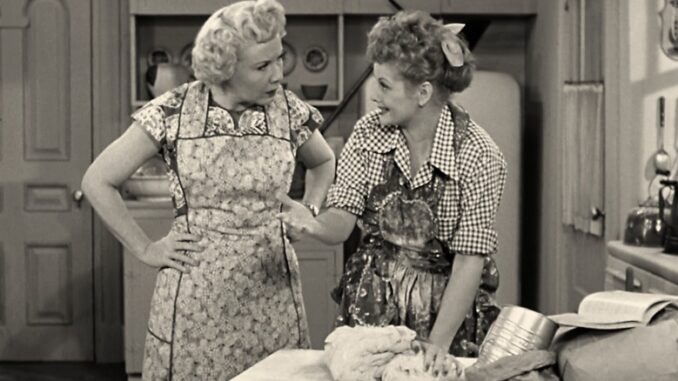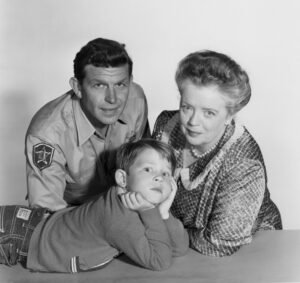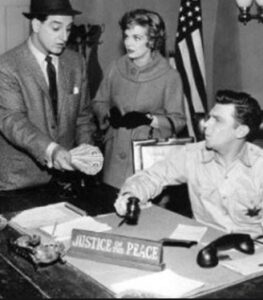
‘The Andy Griffith Show’ is a timeless classic that has charmed audiences since its debut in 1960. Set in the fictional town of Mayberry, this beloved sitcom centers around Sheriff Andy Taylor, his son Opie, and their quirky neighbors. However, amidst the laughs and life lessons, one notable absence looms large: Opie’s mother. Surprisingly, she is mentioned only once throughout the entire series. In this article, we’ll dive into that pivotal moment, explore its implications, and discuss why it has fascinated fans for decades.
The Enigma of Opie’s Mother

From the start, viewers have been intrigued by the absence of Opie’s mother, a character who never graces the screen yet significantly influences the storyline. It raises a myriad of questions: Who was she? What happened to her? Why is she seldom mentioned? This mystery has fueled countless discussions among fans and scholars alike.
The Singular Mention: A Closer Look
In Season 3, Episode 26, titled “The Last Laugh,” Opie’s mother is mentioned by Andy in a poignant moment that adds depth to the show. During a heartfelt conversation, Andy reflects on Opie’s emotional growth, subtly acknowledging the impact of his mother’s absence. This brief mention highlights the show’s ability to convey deep emotions without overt exposition.
The Context of the Mention
Understanding the context of this mention is crucial. At this point in the series, Opie is grappling with understanding the concept of loss and growing up. Andy’s reference to Opie’s mother serves as a reminder of the family dynamics at play in their lives. It’s not just about the absence of a mother; it’s about how this absence shapes Opie and Andy’s relationship.
Why Only One Mention? The Show’s Approach to Family
‘The Andy Griffith Show’ was revolutionary in its approach to family dynamics. Unlike many sitcoms of its time, it focused on the father-son relationship while subtly addressing the complexities of single parenthood. By only mentioning Opie’s mother once, the show allowed viewers to fill in the blanks, fostering a deeper emotional connection to the characters.
Impact on Character Development

Opie Taylor: A Boy Growing Up Without a Mother
Opie’s character development is heavily influenced by his mother’s absence. As he navigates childhood, the absence of a maternal figure presents both challenges and opportunities for growth. This dynamic adds a layer of realism to his character, allowing audiences to relate to his struggles and triumphs.
The Role of Andy Taylor as a Single Parent
Andy Taylor embodies the archetype of a devoted single parent. His unwavering commitment to raising Opie with love and moral integrity demonstrates the strength of their bond. By focusing on their relationship, the show emphasizes that family is not solely defined by traditional structures.
The Neighborly Influence: Aunt Bee
Aunt Bee, played by Frances Bavier, fills the maternal role in Opie’s life. Her presence provides a nurturing environment for Opie, allowing him to experience the warmth of family despite his mother’s absence. The dynamic between Aunt Bee and Opie showcases the significance of extended family in child-rearing.
Cultural Reflections: The 1960s and Family Dynamics
The Changing Face of Family in the 1960s
The 1960s were a time of significant social change in America. Traditional family structures were evolving, and ‘The Andy Griffith Show’ reflected these shifts. By presenting a single father raising his son, the show resonated with viewers navigating similar experiences.
Societal Views on Single Parenthood
During this era, single parenthood was often stigmatized. However, ‘The Andy Griffith Show’ approached the topic with sensitivity and humor, normalizing the idea of a father raising his child alone. This representation contributed to changing perceptions of family dynamics in American society.
The Lasting Legacy of Opie’s Mother’s Absence
Fan Theories and Speculations
Opie’s mother’s absence has sparked numerous fan theories over the years. Some speculate she passed away, while others believe she left the family. These theories illustrate the power of storytelling and audience engagement in shaping character narratives.
The Influence on Modern Television
The subtle approach to character absence seen in ‘The Andy Griffith Show’ has influenced modern television. Many contemporary shows explore similar themes of absent parents, often using them to drive character development and plot progression.
Conclusion: A Mother’s Love in Absence
In the end, the single mention of Opie’s mother on ‘The Andy Griffith Show’ speaks volumes about the impact of family dynamics on character development. While her absence is felt throughout the series, it serves to highlight the strength of the relationships that do exist. The bond between Andy and Opie, coupled with the nurturing presence of Aunt Bee, illustrates that family transcends traditional definitions. As fans continue to revisit the show, the enigma of Opie’s mother remains a poignant reminder of the complexities of love, loss, and growth.